Facelift in Israel
Search and Compare the Best Clinics and Doctors at the Lowest Prices for Facelift in Israel
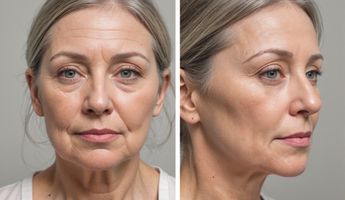
Find the best clinics for Facelift in Israel
With Medijump you can browse 11 facilities offering Facelift procedures in Israel. The cheapest price available is $9,559 in Ramat Gan. And for the cheapest price globally, prices start from $28 in Thailand.
Facelift in Ramat Gan
Price: $ 9,559
Facelift in Tel Aviv
Price: $ 15,589
Thailand offers the best prices Worldwide
Price: $ 28
From 24 verified reviews
sigalit kochmeister, 11 February 2020
Very professional, kind and attentiveLovely clinic and wonderful staffHighly recommend
From 109 verified reviews
Y N, 22 September 2020
Excellent medical center, with friendly staff and highly qualified doctors.Thank you for your work.My operation was successful
From 126 verified reviews
Y Jilani, 19 September 2020
A huge academic hospital serving the greater jerusalem area, world class health professionals and good location and amenities!
From 122 verified reviews
fadi hreaz, 27 August 2020
Hospital gives reasonable treatment but poor sorting
From 106 verified reviews
Abed Faroge, 22 September 2020
בית חולים וצוות ברמה שירותית ואיכותית מאד גבוהה . צוות מקצועי אדיב וקשוב לצרכי המטופלים . רשמת השירות וההיענות של צוות בית החולים משרה אווירת ביטחון שאכן המטופל בידיים טובות .
From 13 verified reviews
charles avital, 16 January 2020
Very beautiful and perfect
Tel Aviv Sourasky Medical Center (Ichilov Medical Center), located in Arison New Hospitalization Building, Tel Aviv, Israel offers patients Facelift procedures among its total of 428 available procedures, across 29 different specialties. Currently, there's no pricing information for Facelift procedures at Tel Aviv Sourasky Medical Center (Ichilov Medical Center), as all prices are available on request only, whilst the national average price is approximately ฿528,998. There are many specialists available at the Clinic, with 13 in total, and they are accredited by JCI Accredited
IIMedCare, located in Arison New Hospitalization Building, Tel Aviv, Israel offers patients Facelift procedures among its total of 19 available procedures, across 3 different specialties. Currently, there's no pricing information for Facelift procedures at IIMedCare, as all prices are available on request only, whilst the national average price is approximately $14,700. All procedures and treatments are undertaken by just a small team of specialists, with 3 in total at the Hospital, and they are not accredited by any recognized accreditations institutes
IsraMedica- Medical Treatments in Israel, located in Shmuel Bait St, Jerusalem, Israel offers patients Facelift procedures among its total of 26 available procedures, across 11 different specialties. Currently, there's no pricing information for Facelift procedures at IsraMedica- Medical Treatments in Israel, as all prices are available on request only, whilst the national average price is approximately $14,700. All procedures and treatments are undertaken by the lead specialist at the Hospital, and they have multiple recognized accreditations, including: ISO Certification - International Organization for StandardizationThe Joint Commission Accreditation ProgramAccreditation Programme of Health OrganizationISPS - The Israel Society of Plastic Surgeons
Assuta Medical Center, located in Arison New Hospitalization Building, Tel Aviv, Israel offers patients Facelift procedures among its total of 15 available procedures, across 6 different specialties. Currently, there's no pricing information for Facelift procedures at Assuta Medical Center, as all prices are available on request only, whilst the national average price is approximately $14,700. All procedures and treatments are undertaken by just a small team of specialists, with 3 in total at the Hospital, and they are not accredited by any recognized accreditations institutes
Health Tour, located in Ramat Yam St, Herzliya, Israel offers patients Facelift procedures among its total of 105 available procedures, across 21 different specialties. Currently, there's no pricing information for Facelift procedures at Health Tour, as all prices are available on request only, whilst the national average price is approximately $14,700. All procedures and treatments are undertaken by the lead specialist at the Hospital, and they have multiple recognized accreditations, including: Accreditation Programme of Health OrganizationISPS - The Israel Society of Plastic Surgeons
- Home
- Israel
Compare Before & After Photos of _procedure_photos.phpFacelift

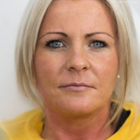
Front view

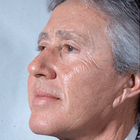
Half-side view


Full-side view
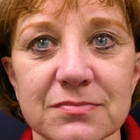
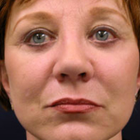
Front view
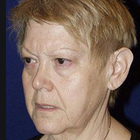
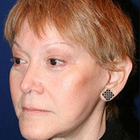
Half-side view
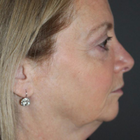
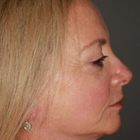
Full-side view
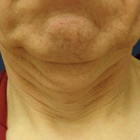
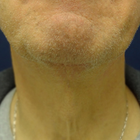
Front view
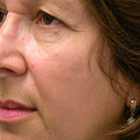
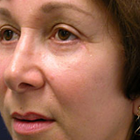
Half-side view
WHY US?
At Medijump, we're making medical easy. You can search, compare, discuss, and book your medical all in one place. We open the door to the best medical providers worldwide, saving you time and energy along the way, and it's all for FREE, no hidden fees, and no price markups guaranteed. So what are you waiting for?

Free

Best Price

Widest Selection

Risk-Free
What you need to know about Facelift in Israel

A facelift, also referred to as rhytidectomy, is a cosmetic surgery that aims to restore a more youthful facial appearance. It can reduce sagging or folds of skin on the cheeks, jawline, and other areas in the face that changes shape due to aging.
As we age, our skin loses their elasticity and become looser. Fat deposits also decrease in some areas and increase in others. This leads to sagging and wrinkles. With a facelift, these problems can be addressed by lifting and tightening the sagging facial tissue. The procedure may involve removing excess skin that’s causing “jowls”, smoothing out wrinkles or folds, and tightening facial tissue. It can also have a rejuvenating effect on the areas below the eyes and the deep lines from the corners of the mouth to the sides of the nose.
It is important to bear in mind that a facelift is not a treatment for creases around the nose, superficial wrinkles, and irregularities in skin color. It also cannot stop the aging process or change your fundamental appearance.
Although there are newer and less invasive facial rejuvenation procedure, a surgical facelift is still one of the most popular today. This is because the procedure offers the most dramatic results.
What is the cost of Facelift in Israel?
Many people take into account the cost of a Facelift in Israel very carefully because it differs greatly from one area or clinic to another. But the typical price normally includes the surgeon's fee, the facility fee, the cost of anaesthesia, and any required pre-operative diagnostics. The complexity of your case, the surgeon's experience, and his or her reputation all have a role in the procedure's ultimate cost, which is important to keep in mind. Remember that these expenses are an investment in your self-worth and personal fulfilment and could have a big impact on your quality of life.
What does a Facelift Procedure Involve?
In terms of aesthetics, your surgeon will recommend the best choice for your own comfort. You may
There are three types of incision used in a facelift, which depends on the degree of change you would like to see and the technique your surgeon will use.
- A traditional facelift incision starts at your temples in the hairline, continues around the ear and ends in behind your neck in the lower scalp. An incision may also be made under your chin to improve the look of the neck.
- A limited incision is shorter than traditional facelift incision. It starts in your hairline just above the ear, continues around the ear but does not extend to the lower scalp.
- Neck lift incisions begin in front of the earlobe, continues around your ear into the lower scalp. This type of incision addresses the sagging jowls, fat accumulation under the chin, and loose neck skin.
In general, your surgeon elevates the skin and tighten the underlying tissues and muscles after making an incision. Fat in your face and neck may be removed, sculpted, or redistributed. Then, the incision is stitched.
How Long Should I Stay in Israel for a Facelift Procedure?
You should be able to leave the hospital on the same day of the surgery if local anesthetic is used. However, if the surgery is done under general anesthetic, you may need to stay in the hospital for about 1 to 2 days. You should plan to stay in Israel for around 7 to 10 days following the surgery because you will have to attend follow-up checkups. During the checkups, your surgeon will monitor your healing and remove your stitches.
What's the Recovery Time for Facelift Procedures in Israel?
While recovering, it is beneficial to prop your head up and refrain from any heavy-duty tasks. Healthy eating habits and effective stress control can remarkably assist in your recuperation journey. A complete healing span could last for a few months, during which the puffiness slowly eases off and the cut marks become less noticeable. Diligently adhering to the post-surgery guidelines from your doctor and consistently showing up for all scheduled check-ups can contribute to a swift, seamless recovery.
Expect to experience bruising, swelling, and some discomfort for the first 3 to 5 days. You may be able to return to work and some light activities within 7 to 14 days, but avoid any vigorous activities for about 5 to 6 weeks. It may take 2 to 3 months until your face feels normal in terms of texture and sensibility.
What sort of Aftercare is Required for Facelift Procedures in Israel?
Your surgeon will provide detailed post-operative instruction. To avoid any complications and maximize the result, you need to follow all instructions closely. You may have to avoid any clothing that is pulled over the head, such as t-shirts and sweaters. You should also avoid using makeup and direct sun exposure for about three weeks, as well as coloring, bleaching, or perming your hair for six weeks following the surgery.
To maintain the results of your facelift, you need to avoid smoking, use sunblock, moisturize your face daily, maintain weight stability, follow a healthy diet plan, exercise regularly, and live a generally healthy lifestyle.
What's the Success Rate of Facelift Procedures in Israel?
Approximately 80% to 90% of people who had a facelift is reported to achieve a positive result after their procedure. However, although great results are expected after a facelift, there can be no guarantee. In some cases, you may need more than one surgery to achieve your desired result. To make sure your surgery is successful; you need to ensure your surgeon is skilled and experienced. You also have to follow your surgeon’s instructions, from the preparation to the aftercare.
Note that the results of a facelift are not permanent because no cosmetic procedure can stop aging. Your facial skin may begin to droop again as you age. The average facelift lasts between 7 and 10 years before you have aged enough to need additional work.
Are there Alternatives to Facelift Procedures in Israel?
If you do not want to (or cannot) undergo a facelift, you can opt for an alternative.
- Mini-facelift - a less invasive procedure that also aims to lift the wrinkles and sagging skin in the lower part of the face. Because it involves a smaller, s-shaped incision around the ear, it cannot address neck sagging or excess skin.
- Botox - it reduces the appearance of wrinkles and usually takes about 24 to 72 hours to take effect. A botox injection uses botulinum toxin to temporarily paralyze muscle activity.
- Fillers - unlike botox, fillers fill the line, crease, or the general facial area with different kinds of substances. These fillers can be used as “volumizers”, plumping and lifting your cheeks, jawline, and temple.
- Laser Skin Resurfacing - this works to give you a younger-looking facial skin by removing some skin layer by layer. Patients can get rid of scars, wrinkles, acne marks, and blotches.
- Ultherapy - this uses ultrasound to heat targeted tissue under the surface of your skin. The heat will then trigger the natural production of collagen. This procedure can be repeated 6 to 12 months because collagen usually takes very long to develop.
- LED - light-emitting diode therapy uses a variety of different colored lights to target various parts of your face. This is a pain-free procedure that treats acne, fine lines, wrinkles, pigmentations, acne scars, and rosacea.
What Should You Expect Before and After the Procedure
Before having the Facelift, you will meet with your surgeon to discuss your goals and what you expect to accomplish. Your medical history will be carefully reviewed at this meeting to ensure that the procedure is safe for you. Before the surgery, you might also need to get some routine health screenings to make sure you're in good health overall.
Expect to have bandages applied to your surgical wounds following the Facelift, and it's possible that a drain may be installed to collect extra fluid. Swelling and bruising are normal postoperative side effects, but these should progressively go away over a few weeks.
What are the Potential Risks of Facelift?
As with other surgical procedures, a facelift can carry some possible risks and complications, which may include:
- Hematoma
- Scarring and skin loss
- Hair loss
- Nerve injury (temporary or permanent changes in facial sensation or difficulties in moving facial muscles)
Some of these risks can be managed with appropriate care and medication. However, you need to be aware of the long term and permanent complications. While they are rare, they may alter your appearance significantly.
Whilst the information presented here has been accurately sourced and verified by a medical professional for its accuracy, it is still advised to consult with your doctor before pursuing a medical treatment at one of the listed medical providers
No Time?
Tell us what you're looking for and we'll reachout to the top clinics all at once
Enquire Now

Popular Procedures in Israel
Prices Start From $108

Prices Start From $1,945

Prices Start From $672

Prices Start From $275

Prices Start From $108

Recommended Medical Centers in Israel for Facelift

- Interpreter services
- Translation service
- Religious facilities
- Medical records transfer
- Medical travel insurance
- Health insurance coordination
- TV in the room
- Safe in the room
- Phone in the room
- Private rooms for patients available

- Interpreter services
- Translation service
- Religious facilities
- Medical records transfer
- Medical travel insurance
- Health insurance coordination
- TV in the room
- Safe in the room
- Phone in the room
- Private rooms for patients available

- Interpreter services
- Translation service
- Religious facilities
- Medical records transfer
- Medical travel insurance
- Health insurance coordination
- TV in the room
- Safe in the room
- Phone in the room
- Private rooms for patients available

- Interpreter services
- Translation service
- Religious facilities
- Medical records transfer
- Medical travel insurance
- Health insurance coordination
- TV in the room
- Safe in the room
- Phone in the room
- Private rooms for patients available

- Interpreter services
- Translation service
- Religious facilities
- Medical records transfer
- Medical travel insurance
- Health insurance coordination
- TV in the room
- Safe in the room
- Phone in the room
- Private rooms for patients available

- Interpreter services
- Translation service
- Religious facilities
- Medical records transfer
- Medical travel insurance
- Health insurance coordination
- TV in the room
- Safe in the room
- Phone in the room
- Private rooms for patients available

- Interpreter services
- Translation service
- Religious facilities
- Medical records transfer
- Medical travel insurance
- Health insurance coordination
- TV in the room
- Safe in the room
- Phone in the room
- Private rooms for patients available

- Interpreter services
- Translation service
- Religious facilities
- Medical records transfer
- Medical travel insurance
- Health insurance coordination
- TV in the room
- Safe in the room
- Phone in the room
- Private rooms for patients available

- Interpreter services
- Translation service
- Religious facilities
- Medical records transfer
- Medical travel insurance
- Health insurance coordination
- TV in the room
- Safe in the room
- Phone in the room
- Private rooms for patients available

- Interpreter services
- Translation service
- Religious facilities
- Medical records transfer
- Medical travel insurance
- Health insurance coordination
- TV in the room
- Safe in the room
- Phone in the room
- Private rooms for patients available
Facelift in and around Israel
About Israel
Israel celebrated 70 years of independence in 2018 - in what is a truly ancient land. The world’s only Jewish and democratic state is home to sites sacred to Judaism, Christianity, and Islam. While these holy places are truly unique attractions, there is more to Israel than religious heritage and complex politics. Jerusalem is the official capital and holy city to three world religions, previously mentioned, while Tel Aviv brims with beaches and bustles with urban vitality. Then there’s the Dead Sea and Masada, the stark, stunning Negev, and fertile Galilee. The number of museums and cultural institutions per relative area is larger in Israel than anywhere in the world.
Home to more than 30 JCI accredited facilities, medical tourists visit Israel for a variety of procedures, but particularly dental and tertiary care. Facelift procedures are also a popular choice.
Popular Parts of Israel
Israel is an alluring destination for those who want to appreciate its astonishing religious sites, stunning natural beauty, and remarkable historic relics.
- Tel Aviv is the economic and technological center of Israel, with a population of over 400,000; it is the most populous city in the country. Located on the Mediterranean coastline, the city offers sunny beaches for any sun-chaser. The city has impressive architecture and has a modern cosmopolitan landscape. Tel Aviv Museum of Art houses works by international artists. In addition, it has a nonstop nightlife with a huge party option to fit every taste.
- Haifa is the country’s third-largest city and it is one of Israel’s high-technology centers as well as a busy working port. The city may have an industrious image, but with a number of museums, gardens, and shrines, it is an amazing place to travel to. The Baha’i Gardens are possibly the most popular attraction as it is the final resting place of the prophet-herald of the Baha’i Faith. Tourists can have a bird’s eye view from the platform at the top or take a free Panorama Tour.
- Eilat is located at the southernmost tip of Israel and is the only Israeli city on the Red Sea. Families come to the city to have a good time on the beach and party-goers come for its all-night parties. The turquoise waters invite visitors to snorkel, scuba dive, or swim. It is recommended to stay in an Oasis at night to get a chance to stargaze under a clear desert night sky. During the day, visit the Eilat Mountains to have a beautiful view of an ancient desert.
- Tsfat or Safed is a quaint mountain-top city surrounded by pine forests. Located at an elevation of 900 meters, the city enjoys warm summers and cold winters. It is a popular summer holiday resort frequented by Israelis and foreign visitors. Here, tourists will find synagogues, art galleries, and unique crumbling stone houses.
- Jerusalem is one of the oldest cities in the world and three major Abrahamic religions (Judaism, Islam, and Christianity) considered it a holy city. Even though it has been destroyed and rebuilt over thousands of years, the city manages to endure its spiritual magnetism. It is overflowing with holy sites, diversity, and layers of history.
Weather and Climate in Israel
Israel is a year-round destination but the temperatures in the city vary widely. The coastal areas such as Tel Aviv and Haifa experiences a typical Mediterranean climate where the winters are rainy and the summers are hot. The area around Northern Negev has a semi-arid climate with hot summers and cool winters. The Southern Negev has a desert climate with extremely hot summers and mild winters. On the other hand, mountainous regions have pleasant summer and cold winters with a little snowfall.
Generally, the winter months from November to March are the coldest months in the country. When mountainous areas such as Jerusalem receives snowfall, the coastal areas experience heavy rainfall. Summer starts in June and ends in August and it is the hottest season in every part of the country, especially in the desert area where the heat can be overbearing. The seasons of spring and autumn have the best weather, with pleasant temperatures and fewer rainy days.
Getting Around in Israel
Ben Gurion Airport is the main gateway to Israel and it is the busiest airport in the country located 20 kilometers southeast of Tel Aviv and 45 kilometers northwest of Jerusalem. The airport is ranked among the five best airports in the Middle East. It serves both domestic and international flights to and from numerous major cities around the world. There is two main passenger terminal at this airport. Terminal 1 serves domestic flights and international budget airlines such as EasyJet and Vueling, while Terminal 3 serves international flights.
Since the distance between one city to another is relatively short, getting around Israel is easy. The quickest and most convenient way is by domestic flights. The tickets are not very expensive and deals are often available online. Sometimes a one-way ticket can cost as little as 89 NIS (25 USD). Buses are also convenient but can be slow during traffic jams. Buses connecting Jerusalem, Tel Aviv, and Haifa depart very frequently. A one-way ticket from Tel Aviv to Jerusalem is around 25 NIS (7 USD). Israel’s main bus company is the Egged Bus Company. Trains are also available and very comfortable. They are a lot faster than the bus but the cost can be higher.
Taxis are widely available and can be hailed directly from the streets. Although most taxis are metered, you can agree on a fixed rate and be aware that some drivers are known to overcharge tourists, so you should insist on using the meter and make sure that it is reset to the base fare after you get in. The base fare is normally around 12.30 NIS (3.5 USD). There is also a shared taxi van known as Sherut. It is a good option to travel between Tel Aviv and Jerusalem or Tel Aviv and Haifa.
Tourist Visas in Israel
All visitors must hold a passport valid for at least six months after the date of departure from Israel. Citizens of 99 countries including the European Union, Canada, Singapore, Russia, and the United States do not require a visa to enter the country for up to 3 months. Nationals not listed on the visa exemption agreement need to obtain a visa and should contact their nearest embassy of Israel. Citizens of 25 countries require a confirmation from the Israeli government before a tourist visa is issued.
Additional Information
- Local Currency: The currency is the New Israeli Shekel (NIS) and 1 USD will get you 3.28 NIS.
- Money & Payments: ATMs that accept international cards are widespread (mostly Visa and MasterCard), except at border crossings with Egypt and Jordan. Credit cards are widely accepted and tipping is common but normally not expected.
- Local Language: The official language is Hebrew and Arabic has a special status under Israeli law as a semi-official language. Russian is spoken by around 20% of the population. Most of the population can speak English fairly well as it is required in schools and universities.
- Local Culture and Religion: More than 70% of the population follows Judaism. There are small groups of Muslims, Christian, and Druze. Muslims are the largest minority group in the country.
- Public Holidays: The country celebrates major national holidays as well as Jewish holidays such as Independence Day, Jerusalem Day, and Hanukkah.
Popular Searches
- Plastic Surgery in Thailand
- Dental Implants in Thailand
- Hair Transplant in Thailand
- Breast Augmentation Thailand
- Gastric Sleeve in Thailand
- Gender Reassignment Surgery in Thailand
- Laser Hair Removal in Bangkok
- Botox in Bangkok
- Dermatology in Bangkok
- Breast Augmentation in Bangkok
- Coolsculpting in Bangkok
- Veneers in Turkey
- Hair Transplant in Turkey
- Rhinoplasty in Turkey
- Stem Cell Therapy in Mexico
- Rhinoplasty in Mexico
- Liposuction in Mexico
- Coolsculpting in Tijuana
- Rhinoplasty in Korea
- Scar Removal in Korea
- Gastric Sleeve in Turkey
- Bone Marrow Transplant in India
- Invisalign in Malaysia
- Plastic Surgery in the Dominican Republic
- Tummy Tuck in the Dominican Republic
- Plastic and Cosmetic Surgery in Poland
- Rhinoplasty in Poland
- Hair Implant in Poland
- Dental Implants in Poland
- IVF in Turkey








